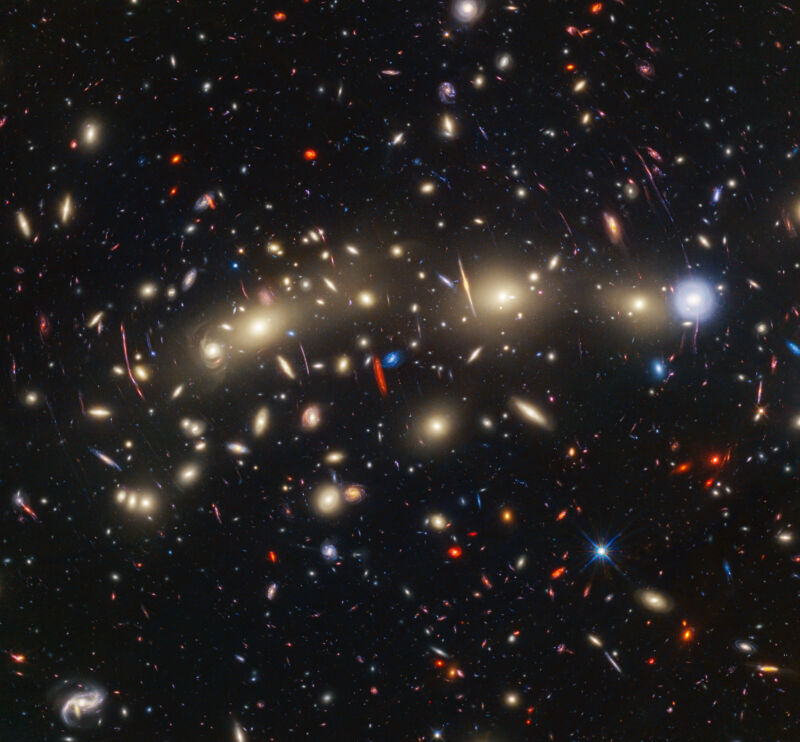
Enlarge / This panchromatic view of galaxy cluster MACS0416 was created by combining infrared observations from the NASA/ESA/CSA James Webb Space Telescope with visible-light data from the NASA/ESA Hubble Space Telescope.
Welcome to the Daily Telescope. There is a little too much darkness in this world and not enough light; a little too much pseudoscience and not enough science. We'll let other publications offer you a daily horoscope. At Ars Technica, we're going to take a different route, finding inspiration from very real images of a universe that is filled with stars and wonder.
Good morning. It is November 13, and today we're traveling 4.3 billion light-years away from Earth, to a cluster of galaxies known as MACS0416. This distant object, which turns out to be two galaxy clusters that are colliding with one another, was first discovered in images captured by the Hubble Space Telescope.
Hubble, of course, brought "deep field" astronomy alive by publishing images with thousands of galaxies. Now, by combining Hubble observations with the new James Webb Space Telescope, NASA and its partners have produced an even deeper field image. The resulting panchromatic image, which combines visible and infrared light, gives us one of the most comprehensive views of the Universe ever obtained.
Read 4 remaining paragraphs | Comments
